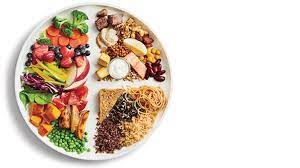Exercise, Nutrition, and the Real Path To Fat Loss
When embarking on a fat loss phase (and it should be a phase, not a never ending story!), many people assume that exercise is the golden ticket. While exercise is undoubtedly beneficial for both mental and physical health, it's not the most significant player when it comes to fat loss. Let's look at why nutrition and daily movement may be more critical components to your success.
1. The Energy Balance Equation
The simple principle behind weight loss is the concept of "calories in versus calories out." To lose weight, you must burn more calories than you consume. Sounds simple, right? However, here's the catch: while an hour of intense exercise might burn 500-600 calories for the average person, a single meal can quickly replace those calories, and often even exceed them.
2. Overcompensation After Exercise
There’s a term called "compensatory behaviours," which refers to the idea that after we exercise, we might move less for the rest of the day or reward ourselves with extra food because we "earned it." This can negate the calorie deficit we achieved through exercise. On the other hand, focusing on daily movement, like walking more, integrates calorie-burning seamlessly into your day without prompting overcompensation.
3. Nutrition is More Manageable
While burning 500 calories might take an hour or more of hard exercise, eliminating 500 calories from your diet can be as simple as skipping a sugary drink or have more veggies and less rice. When you start to understand the caloric value of foods, you realise that making small nutritional adjustments can have a far greater impact on fat loss than trying to burn those calories off.
4. Exercise Can Increase Hunger
For many, exercise can spike hunger levels. While this isn't universally true for everyone, it's not uncommon to feel very hungry after a hard workout, leading to larger or unhealthier meals. On the flip side, focusing on nutrition and making healthier choices can help regulate hunger and satiety hormones, making you feel fuller for longer. If you have ever "over done" exercise, you will know this feeling, the drive to eat is huge after long duration exercise, I know I was a triathlete for 15 years!
5. The Importance of Non-Exercise Physical Activity (NEPA)
Daily movement, or NEPA, includes all the activities you do outside of structured workouts – think walking, house work gardening, or even fidgeting. NEPA can account for a significant portion of your daily energy expenditure. The best part? These movements don't typically make you as hungry as a hard workout, and they add up without you even noticing.
6. Holistic Health Benefits
While nutrition plays a central role in fat loss, it's also vital for other health benefits, such as improved digestion, enhanced mental clarity, better skin health, and reduced risk of chronic diseases.
In Conclusion
Exercise is excellent for building strength, increasing cardiovascular health, boosting mental well-being, and a plethora of other benefits. However, when it comes to fat loss, nutrition takes the front seat. It's more efficient and often more sustainable for most people.
Using exercise to burn calories misrepresents the value of exercise. It can lead to over training, because when your weight loss stalls you assume more training is the solution. This behaviour often also leads to an unhealthy relationship food if you are only exercising to "earn" or "burn off" food. This pattern is seen in patients with eating disorders. Devices that measure calories burned in exercise are wildly inaccurate leading you to be more likely to eat more than you have burned.
Remember, it's not about completely side lining exercise but understanding its role in the larger picture. By focusing on nutrition and incorporating daily movement into your routine, you're setting yourself up for a balanced and sustainable fat loss phase x



Comments
Post a Comment